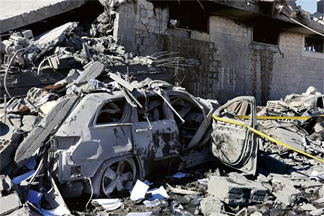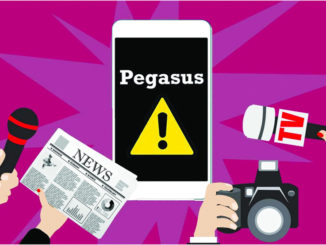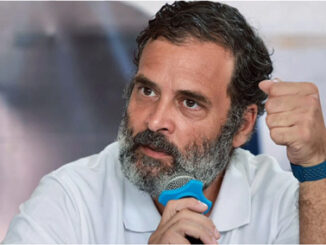
“Experienced in public affairs, Kejriwal should know that as long as the party concentrates only on him it will never be able to spread its wings to the rest of the country. Democracy imposes responsibilities on political parties in many ways, but, above all, a party cannot be democratic unless it practices inner-party democracy. The results in Himachal Pradesh and Gujarat show up the limits of a one-man party. A party needs cadres. It also needs ideology so that its members know what they stand for and what they stand against. Before we vote for a political party, we must know what its worldview is. A democratic party has to be committed to human emancipation from domination and oppression.”
Apart from service delivery, the AAP’s initiatives such as report cards and polls on who the CM should be, carry appeal. Untrammeled by any kind of ideology, the leadership adjusts its rhetoric according to the mood of the country — from publicly reciting Hanuman Chalisa to demonstrating patriotism through flags. The party should tell us unequivocally what it stands for or against.

In the 1970s and 1980s, the reinvention of civil society in eastern Europe re-catalyzed a powerful debate on what was called the ‘crisis of representation’. Citizens turned their back on Stalinist states and began to connect with each other in civil society through organizations ranging from discussion groups to soup kitchens. The future belonged to citizen groups and social movements linked through coalitional politics and ideologies.
In India, the crisis of representation took hold of the political imagination after the Emergency and escalated in the years that followed. Indians looked for an alternative to a moribund party system. Over time, political disenchantment led to the consolidation of two sorts of political formations. In the 1980s, the Hindutva movement extended the ideological commitment of its parent organization — the Rashtriya Swayamsevak Sangh — into every arena of collective life.
In 2012, a new party was created out of the 2011 ‘India Against Corruption’ movement which took the country by storm. Interestingly, the campaign against corruption had a place for everyone — from the religious right to the left. Ideology was done away with.
After spectacularly winning the Delhi elections in 2015 and 2020, Arvind Kejriwal set his sights on transforming the Aam Aadmi Party (AAP) into a national party. In the recent elections in Gujarat, the AAP secured 12 per cent of the votes — after having got the required vote share in the Assembly elections in Delhi, Punjab and Goa. It has become a national party in 10 years. This is remarkable considering that experienced regional leaders from Lalu Prasad Yadav to Chandrashekar Rao have not been able to secure this status for their parties.
Apart from service delivery, the AAP’s initiatives such as report cards and polls on who the CM should be, carry appeal. Untrammeled by any kind of ideology, the leadership adjusts its rhetoric according to the mood of the country — from publicly reciting Hanuman Chalisa to demonstrating patriotism through flags.
We are caught between a highly ideological party and a party that disdains ideology. The cadres of the BJP intend to rework every institution/practice in the country, from marriage to schools, to universities, to renaming and restructuring of spaces, to rewriting of history, and to refashioning of the nationalist imagination. The AAP prefers to concentrate on pragmatic solutions to issues such as education and healthcare, reduction of power bills and promotion of mohalla clinics. Has the AAP failed to transcend its original avatar as a civil society organization? Perhaps. Consider the implications of concentrating on issues that are civic, rather than wholly political, such as democracy. Citizens have the right to well-being for which quality education, healthcare, employment, housing and income are essential components. More significantly, citizens have the right to civil liberties, the right to not be imprisoned without due cause, the right to freedom of thought and expression, the right to protest, and the right to not be harmed.
Whether it was the anti-CAA agitation in December 2019-January 2020, the assault on Jamia Millia Islamia and JNU faculty members and students in January 2020, communal violence in north-east Delhi in February 2020, protests at Shaheen Bagh or the indiscriminate arrests of journalists, academics, civil society activists and students, the AAP has preferred to sit on the fence. Presumably, the AAP does not support violation of rights, but acts of omission are as complicit with infringements of basic rights as acts of commission. As long as the AAP shies away from taking a stand on basic democratic rights, the party will remain a service provider which also fights elections.
Experienced in public affairs, Kejriwal should know that as long as the party concentrates only on him it will never be able to spread its wings to the rest of the country. Democracy imposes responsibilities on political parties in many ways, but, above all, a party cannot be democratic unless it practices inner-party democracy. The results in Himachal Pradesh and Gujarat show up the limits of a one-man party. A party needs cadres. It also needs ideology so that its members know what they stand for and what they stand against. Before we vote for a political party, we must know what its worldview is. A democratic party has to be committed to human emancipation from domination and oppression.
To argue that a political platform of a party intends to fix political predicaments through improving schools and hospitals — noble as these objectives might be — is to decontextualize the whole issue of what citizens want. We need healthcare and education, but we also need rights. Rights come in packages; they are indivisible. We also need freedom of thought, action and expression.
The AAP is a party many of us have invested in, but it must not stop at limiting its notions of a good life to schools and clinics. These are components of a good life, but ultimately it is rights that defend the dignity of human beings. It is rights that mark out the agenda of a party from cynical power-grabbing platforms. The AAP should tell us unequivocally what it stands for or against. It should not be reduced to a service provider. The party should restore its democratic credentials to avoid this fate.
(The author is a political scientist)





Be the first to comment